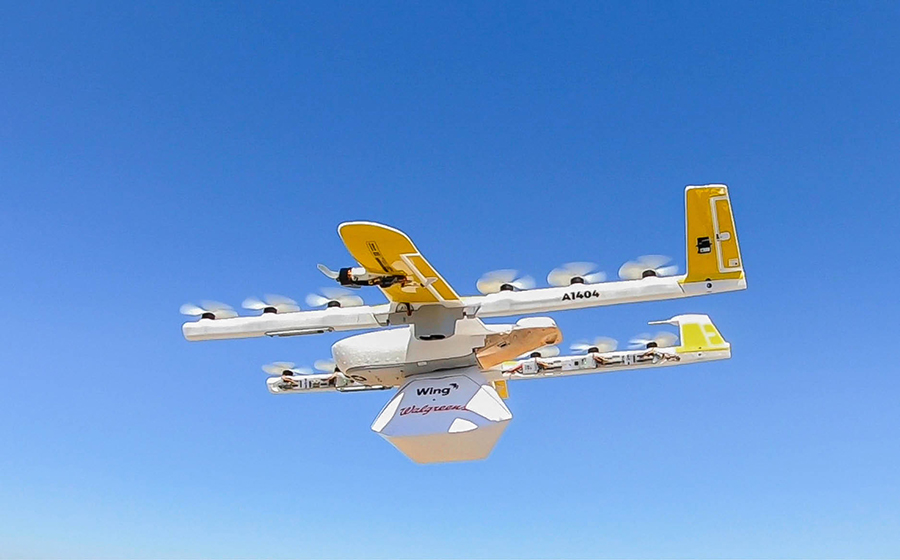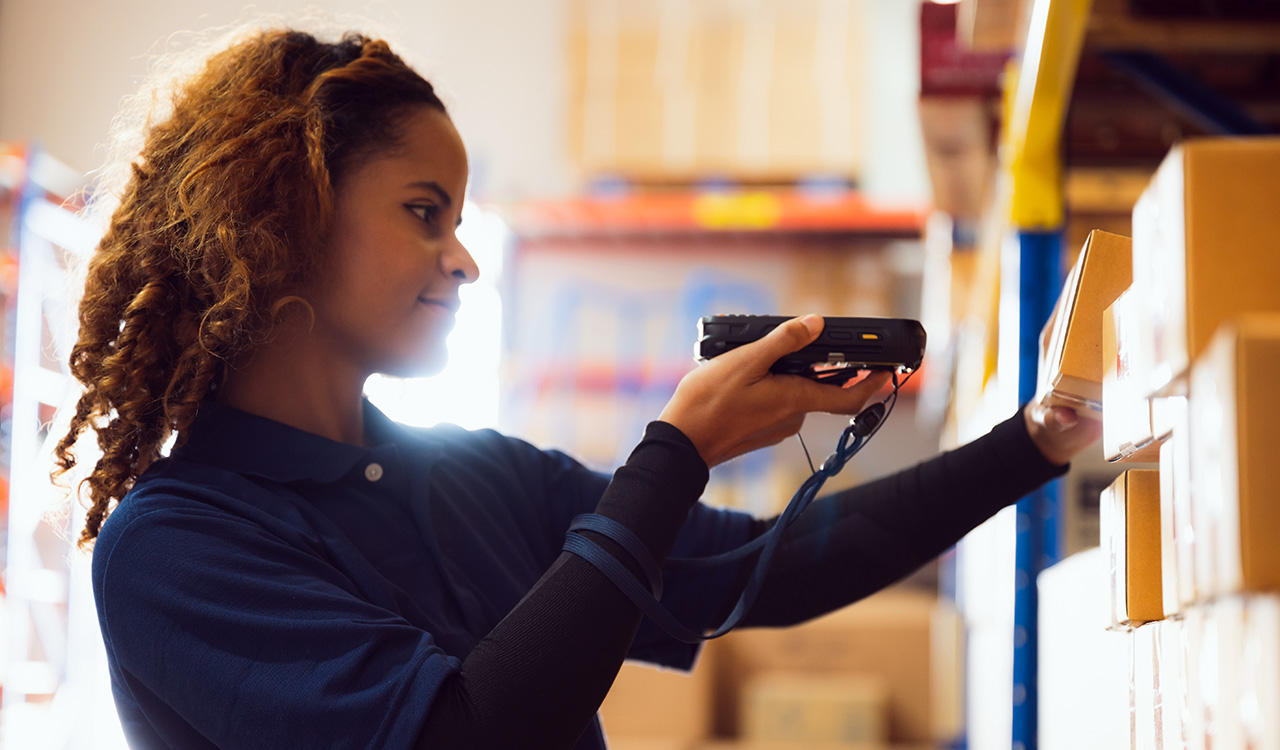Surprisingly, Walgreens has a few new tricks up its sleeve. In fact, there are two major new-world developments in the works.
- Walgreens is poised to become the first retailer to fulfill product orders directly to consumers\’ residences by means of airborne drones. Not many retail observers would have predicted that Walgreens would be first off the ground with that capability.
- Secondly, Walgreens will soon start to offer a range of Kroger\’s successful private brands for sale in its stores. This is a highly unusual arrangement given that Kroger and Walgreens are to some degree competitors for shoppers\’ food dollars.
Drones Deliver
Let\’s take a closer look at these developments, starting with the drones. The drone project is a collaboration between Walgreens and Wing Aviation. Walgreens will supply the product, Wing the aircraft. Wing is an Alphabet company (Google), and is the first drone operator to be certified as an air carrier by the Federal Aviation Administration.
Deliveries will start in upcoming weeks in Christiansburg, VA, which is fewer than 10 miles, as the drone flies, from Virginia Tech where Wing has been developing flight capabilities. It\’s a town of about 20,000 residents who live chiefly in single-family houses, many in close proximity. That makes it a pretty good place to pilot the drone project.
Customers interested in drone delivery must sign up for the program. Product orders will be placed by selecting a range of more than 100 SKUs, or six \”convenience packs\” of themed product such as baby, cough and cold, kids, allergy and so on, from the Wing app. It\’s expected that orders will be fulfilled within minutes of order placement. Imagine what this can do to serve mothers with sick children, people with disabilities and elder care customers who have limited mobility. Prescriptions won\’t be fulfilled by airborne means. This is a major experiment and if it\’s successful, it will accelerate drone deliveries — by quite a few companies.
The Kroger Connection
In the meanwhile, here\’s a look at the Walgreens-Kroger product experiment. Walgreens and Kroger will soon offer a sizable selection of Kroger\’s private brands at 35 Walgreens stores in the Knoxville, TN area. Mirroring that offer, a selection of Walgreens\’ private brand health and beauty products will be offered at 17 Kroger supermarkets in the area.
This arrangement is especially dramatic for Walgreens because in some locations it will include fresh meat, produce and frozens along with the expected range of shelf-stable products. In all, more than 2,000 grocery items will be available at some Walgreens locations. Additionally, at some locations, customers will be able to pick up orders placed online with Kroger at Walgreens\’ curbside area.
This obviously puts Walgreens fully into the food-retailing business. The Walgreens stores probably won\’t offer enough product to become the sole food-shopping destination for most food shoppers, yet it will be useful to many for fill-in purchases on occasions when a full supermarket trip isn\’t warranted.
In effect, Walgreens will become a small supermarket.
As for Kroger, it could be argued that it will cannibalize its own foot traffic by propping up the food selection at Walgreens, and doubtless that will happen to some degree. Yet, it might prove to be worth the risk by placing the Kroger name and product selection in front of many additional customers and getting them familiar with the products. The same benefit is possible for Walgreens through placement of its products in Kroger stores.
Moreover, the Tennessee experiment enlarges a small pilot project with a few of the same features that has run for nearly a year in northern Kentucky, so one can assume it\’s working out for all concerned.
The Bigger Picture
Finally, what does this all mean for other forms of retailing? Most important is that it shows that large-scale heritage companies can change up their models and use radical thinking to remain relevant and competitive. After all, Walgreens is the quintessential heritage company. It\’s more than 100 years old with nearly 9,600 stores in the 50 states, not to mention its global presence by way of the Walgreens Boots Alliance. Age aside, we see Walgreens tinkering with drones and making major changes in its product alignment by way of the Kroger partnership.
Similarly, Kroger is a large-scale heritage company that\’s also more than 100 years old. It has around 3,000 stores, most of them full-line supermarkets. Indeed, Kroger is the largest supermarket operator in the nation. But none of that weight is preventing it from being nimble enough to realign for the future.
The advantage both these companies has is pretty deep pockets and a lot of expertise and vision. But they\’re not the only heritage companies with those attributes. Both brands are good examples of reinvention and re-engineering to meet the needs of customers that demand convenience, innovation and personalized services. Those mandates work across all retail categories and leadership should take a page from Kroger\’s and Walgreens\’ playbook to anticipate market shifts and customer needs.




